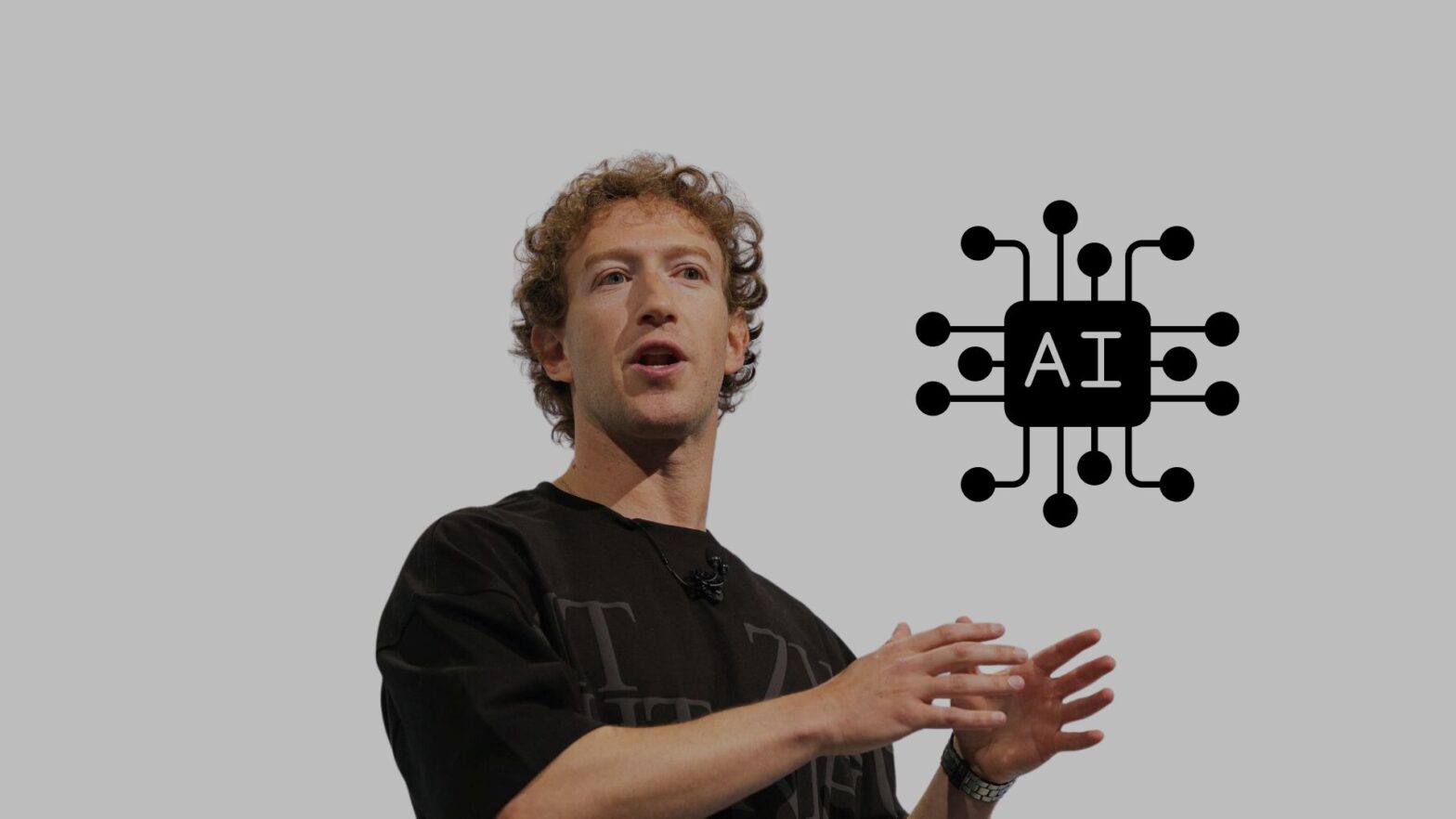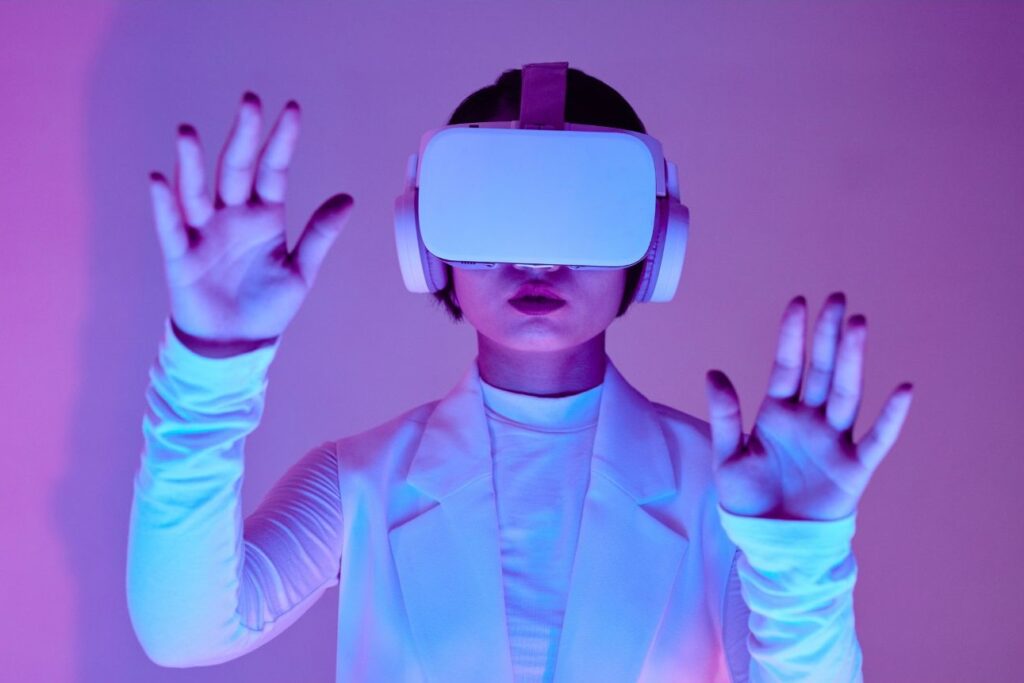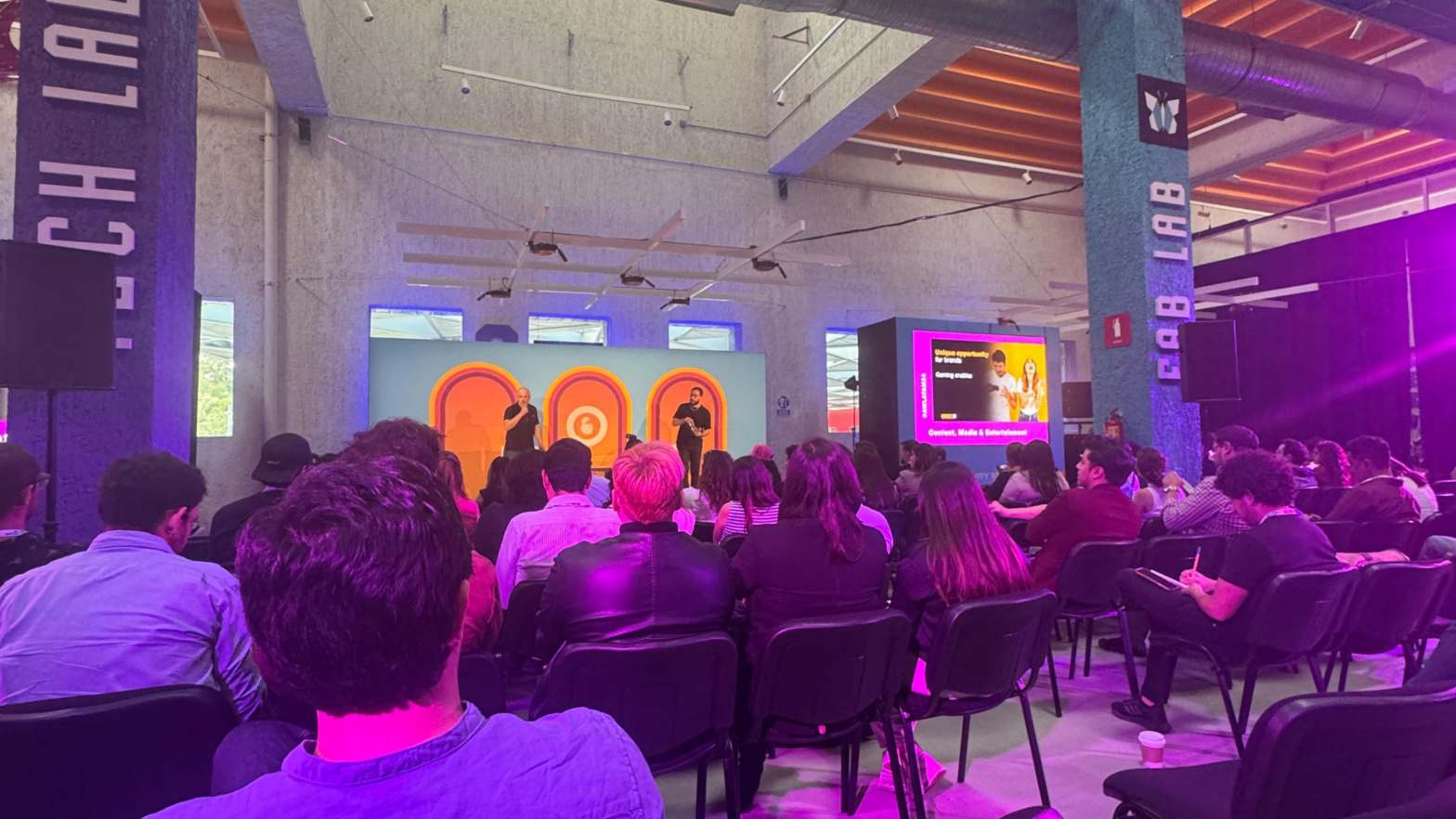Mark Zuckerberg unveils new Meta opdates, cementing his position as the world’s fourth richest person
October 2, 2024

Angela Abril
On September 26, Mark Zuckerberg took the stage at the Meta Connect 2024 event to announce a series of groundbreaking updates for Meta. These included the launch of the new Orion augmented reality (AR) glasses, the budget-friendly Meta Quest 3S, improvements to the Ray-Ban Meta smart glasses, and the integration of artificial intelligence (AI) across the company’s product line. These announcements have reinforced Meta’s position as a key player in the tech industry, boosting its stock value and positioning Zuckerberg as the fourth richest person in the world.
Summary of Meta’s key announcements:
- Orion Augmented Reality Glasses: The new AR glasses from Meta feature micro LED projectors that create a virtual heads-up display (HUD) overlaying real-world objects. With an ergonomic and lightweight design, Orion aims to revolutionize the way we interact with augmented reality.
- Meta Quest 3S: A more affordable version of its virtual reality (VR) headset, the Quest 3S is priced at $299, compared to the $3,499 Apple Vision Pro. This move seeks to democratize access to virtual reality, making it more accessible to a broader audience.
- Ray-Ban Meta Glasses Updates: The smart glasses now include real-time translation and reminder features, along with improvements that make them even more appealing to users who want to integrate technology into their daily lives.
- AI Integration and Llama 3.2: Meta introduced Llama 3.2, the latest version of its AI model, which can now process images and graphics, expanding its capabilities for visual analysis and personalized experiences.
This event not only placed Meta at the forefront of the tech world but also had a significant impact on the stock market. Meta’s shares (NASDAQ) rose 3% following the announcements, further solidifying its position as one of the most valuable companies in the world, with a market capitalization exceeding $1.4 trillion.
Stock market impact and Zuckerberg’s trajectory
Since its rebrand from Facebook to Meta in October 2021, the company has seen a remarkable recovery in its stock price. In November 2022, Meta’s shares plummeted to $88 per share, but they have since surged over sixfold, reaching $567 per share today. This has brought Zuckerberg’s net worth to $201 billion, making him the fourth richest person in the world, according to Bloomberg, behind Elon Musk, Jeff Bezos, and Bernard Arnault.
Meta’s stock resurgence can largely be attributed to its focus on artificial intelligence and augmented reality. Investment firms like JP Morgan Chase & Co. and Bank of America (BofA) have backed Meta’s growth, raising their price targets to $640 and $630 respectively, highlighting innovation in AI and the introduction of products like Orion glasses as key growth drivers for the company.

Meta vs. Apple: a battle of tech giants in augmented and virtual reality
The competition between Meta and Apple in the augmented and virtual reality space is shaping up to be one of the most fascinating tech duels of the decade. Meta is focusing on affordable devices and an open ecosystem to democratize technology, while Apple remains committed to premium products within its closed ecosystem, such as the Apple Vision Pro.
This strategic difference is crucial. While Meta launches products like the Quest 3S at accessible prices, Apple remains in the luxury segment, relying on its loyal user base. For Meta, the key is capturing a massive audience, encouraging the development of innovative applications and experiences within an open ecosystem.
Meanwhile, the recent introduction of the Orion glasses reinforces the idea that Meta is dedicated to making augmented reality a fundamental part of everyday life, aspiring for its devices to become a genuine alternative to smartphones. This positions Meta as a leader in the race for the future of augmented and virtual reality, while Apple, though a formidable competitor, still needs to prove that its premium approach will achieve mass adoption.
The importance of artificial intelligence for Meta
Artificial intelligence is the driving force behind Meta’s current strategy. The recent launch of Llama 3.2 demonstrates the company’s commitment to AI, as this version can process images and graphics, opening up a range of possibilities for personalization and data analysis.
A noteworthy fact is that over one million advertisers are already using Meta’s generative AI tools to optimize their ad campaigns, resulting in higher click-through and conversion rates. This shows that AI is not just an internal tool for Meta but a valuable offering that has captured the interest of advertisers and brands seeking to improve their performance in digital marketing.
For marketing, this means the ability to create much more immersive and contextually adapted advertising experiences. With Llama 3.2 and Orion augmented reality glasses, brands will be able to interact with consumers in previously unimaginable ways, generating a deeper and more relevant impact.
Meta’s restructuring and future: is the bet on the Metaverse sustainable?
Despite Meta’s recent success on the stock market and its technological advancements, the company’s journey hasn’t been without challenges. Reality Labs, the division responsible for developing the metaverse and augmented reality, has posted losses of $60 billion since 2019. In response to these financial setbacks, Meta has reduced its metaverse budget by 20% and plans to cut Reality Labs’ expenses by another 20% by 2026.
However, Zuckerberg appears unwilling to abandon his commitment to AI and the metaverse. During a July 31 earnings call, he stated that Meta will continue investing in AI research and expand its Ray-Ban Meta AI glasses. The goal is to grow the AI business as a cornerstone for the company’s future.
The future of augmented and virtual reality in marketing
As Meta and Apple vie for dominance in augmented and virtual reality, the landscape for marketers is becoming more exciting than ever. These technologies offer countless opportunities to create personalized and interactive experiences that enable brands to connect with their audiences more effectively.
Immersive marketing will be the next big revolution, and Meta, with its focus on AI and augmented reality, is laying the groundwork to lead this shift. The Orion glasses and Llama 3.2 model are just the tip of the iceberg in what appears to be a new era for digital marketing.
Where are we headed?
Zuckerberg’s vision, which just a couple of years ago seemed overly ambitious, is beginning to take shape. Meta’s push into augmented reality, virtual reality, and artificial intelligence is redefining how we interact with technology and, in turn, how brands connect with consumers.
While there is still uncertainty about how this tech battle will unfold, it’s clear that Meta and Apple are paving the way for the future. For marketers and businesses, now is the time to adapt and prepare for a world where augmented reality and artificial intelligence won’t just be options but essential tools for success.
Ultimas publicaciones

December 16, 2024
Tech giants Back Trump: $1 million donations from Amazon, Meta, and OpenAI spark debate

December 16, 2024
Deel and the Rise of Remote Work: What Is This Fintech Doing Differently?

December 16, 2024

